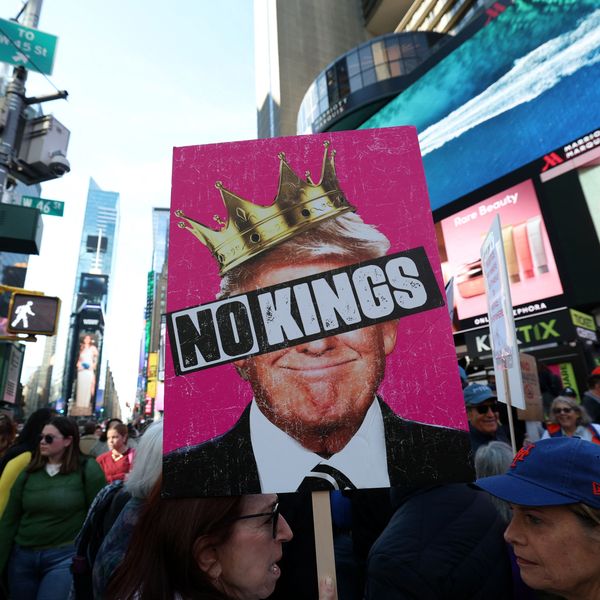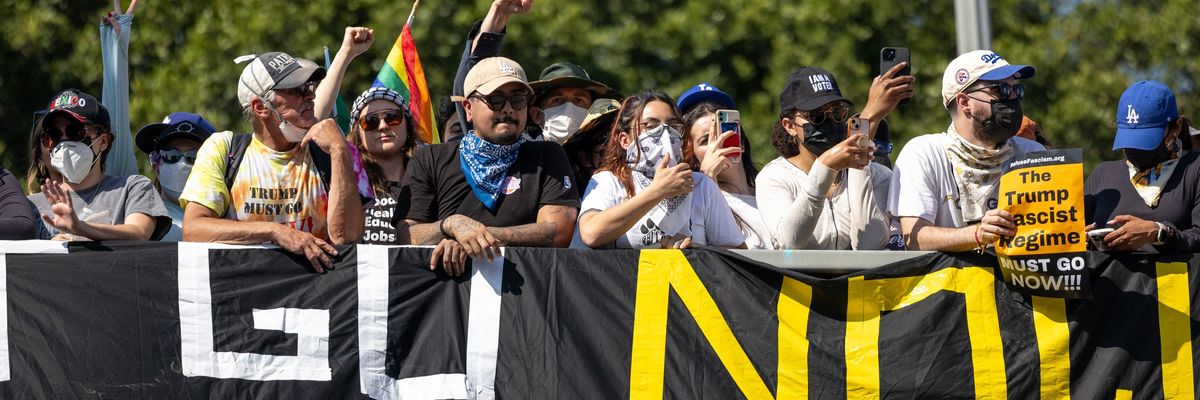U.S. President Donald Trump on Saturday ordered the deployment of National Guard troops to quell anti-U.S. Immigration and Customs Enforcement protests in Los Angeles, prompting a response from the coalition behind upcoming nationwide protests planned to counter Trump's Washington, D.C. military parade on June 14.
The coalition organizing the "No Kings" national day of action accused the Trump administration of "escalating tensions" in a statement released Sunday.
Generally, the U.S. military is not supposed to take part in civilian law enforcement except in times of emergency. Trump on Saturday invoked a federal law that, according to The Guardian, empowers the president to call part of California's National Guard into federal service. California's Democratic Gov. Gavin Newsom objected to this move.
Protests began on Friday following reports that federal immigration agents were carrying out raids in Los Angeles.
In their statement, the coalition denounced Trump's decision to call National Guard members into federal service, and wrote that "people are peacefully and lawfully protesting the administration's abuses of power and the abduction of their neighbors by ICE."
"Instead of listening, the Trump administration is escalating tensions," the coalition wrote. "Against the guidance of local leaders, they are deploying military force to suppress free speech. They do not care about our safety—it's about silencing opposition. It's a blatant abuse of power designed to intimidate families, stoke fear, and crush dissent."
Law enforcement has acted with force against protestors, including using tear gas and flash bangs, according to CNN. And according to the Los Angeles Times, overnight into Monday businesses were vandalized and burglarized, capping a period of unrest that saw protestors set cars on fire, in addition to other acts of vandalism.
Los Angeles Mayor Karen Bass on Sunday denounced the lawbreaking, but also laid blame on the Trump administration, according to the LA Times.
"What we're seeing in Los Angeles is chaos that is provoked by the administration," Bass said, according to the outlet. "When you raid Home Depot and workplaces, when you tear parents and children apart, and when you run armored caravans through our streets you cause fear and you cause panic."
In concluding their statement about Trump's deployment of the National Guard, the coalition behind "No Kings" struck a defiant tone. "From major cities to small towns, we'll rise together and say: we reject political violence. We reject fear as governance. We reject the myth that only some deserve freedom," they wrote.
The groups say that more than 1,800 rallies are planned for Saturday and that the events are guided by a commitment to nonviolent protest. In the statement, the group also said that organizers with "No Kings" are trained in de-escalation tactics and plan to work closely with local partners to ensure actions are peaceful.
Leah Greenberg, co-executive director of Indivisible, one of the groups behind "No Kings," has said that the aim is to "create contrast, not conflict."
Over 150 progressive organizations, watchdogs, climate groups, and other entities are partners on the "No Kings" rallies.
See the full list of planned events and locations here.




